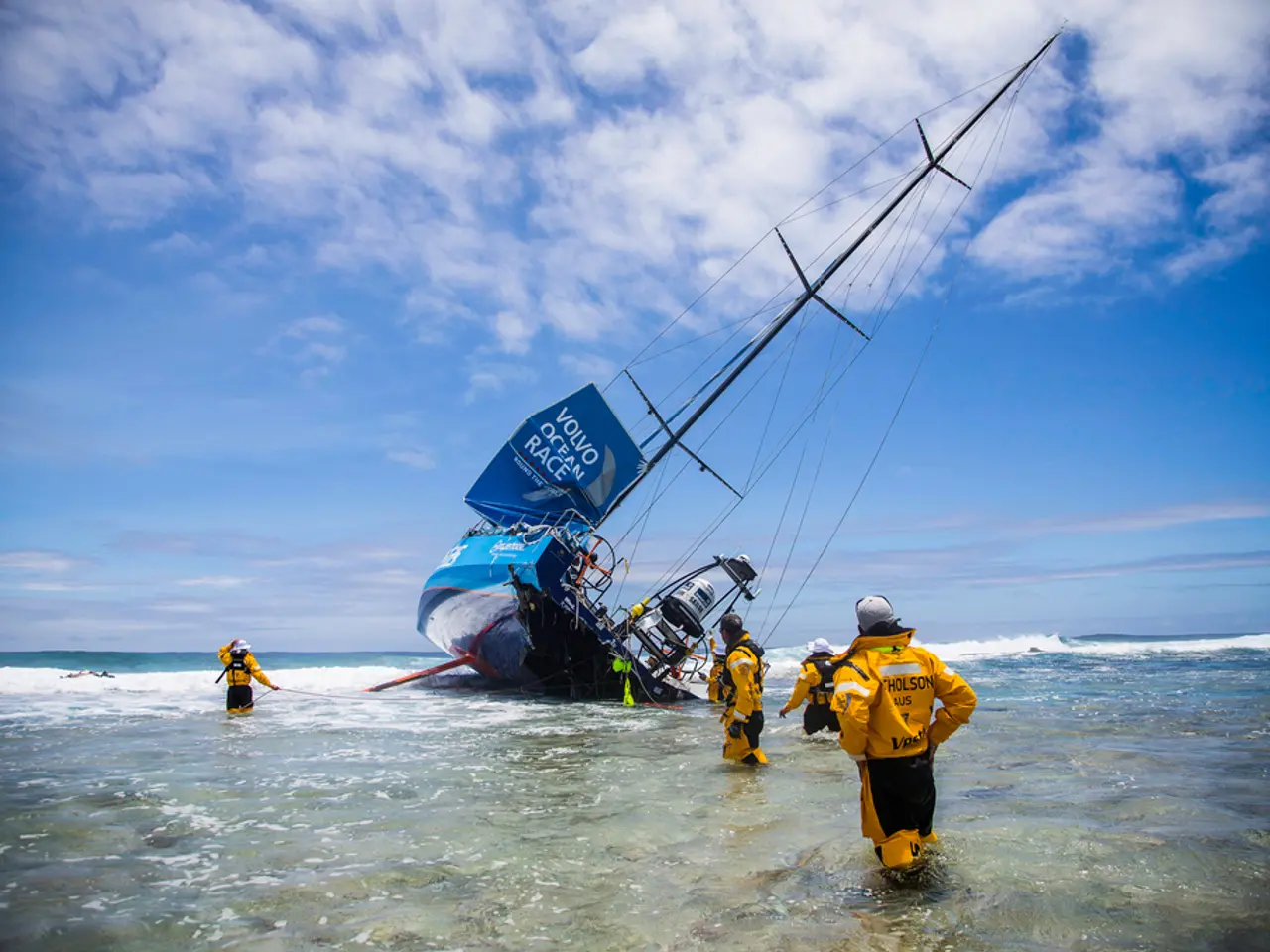Dubai Billionaire's Death in Submarine Incident: U.S. Report Suggests Preventability
The US Coast Guard Marine Board of Investigation has released a comprehensive report on the 2023 Titan submersible implosion that took the lives of five individuals, including French explorer Paul-Henri Nargeolet, Dubai-based British billionaire Hamish Harding, and UK-based Pakistani business tycoon Shahzada Dawood, among others.
The investigation found that OceanGate, the US-based company responsible for managing the Titan submersible, operated outside established deep-sea safety protocols for several years prior to the incident, evading oversight through intimidation tactics, regulatory gaps, and the company's favorable reputation.
The design, testing, certification, maintenance, and inspection of the Titan were found to be inadequate, failing to meet fundamental engineering principles critical for the hazardous underwater environment. This included the continued use of the sub despite prior damage that likely compromised hull integrity.
The report also cited a toxic workplace culture within OceanGate, which contributed to insufficient safety oversight and poor operational decisions. The regulatory framework at both domestic and international levels was found to be inadequate for novel and scientific submersible operations, exacerbating oversight challenges.
The tragedy was characterized as preventable, with the loss of lives attributed to OceanGate’s systemic safety failures and operational negligence. Additionally, investigators found evidence suggesting potential criminal conduct by OceanGate’s CEO Stockton Rush, who died in the implosion. Had he survived, the Coast Guard indicated they would have recommended manslaughter charges to the Department of Justice.
The over 300-page report includes 17 safety recommendations aimed at enhancing regulatory oversight, improving inter-agency coordination, and closing policy gaps for submersibles and vessels of novel design.
Chloe Nargeolet, whose father, French oceanographer Paul-Henri Nargeolet, died in the incident, expressed satisfaction with the investigation. The board found an ineffective whistleblower process at OceanGate and faulted the absence of a timely Occupational Safety and Health Administration investigation into a 2018 OceanGate whistleblower's complaint.
The chair of the US Coast Guard Marine Board of Investigation, Jason Neubauer, stated that there is a need for stronger oversight and clear options for operators who are exploring new concepts outside of the existing regulatory framework. The report noted an inadequate regulatory framework for submersibles and other novel vessels as a factor in the incident.
After a tense four-day search, the shattered remains of the Titan submersible were discovered 1,600 feet (488 meters) from the bow of the Titanic. OceanGate suspended all operations following the incident, and the stock price of the company has yet to recover.
This incident serves as a stark reminder of the importance of proper engineering rigor, safety culture, and respect for regulatory norms in the field of deep-sea exploration. The findings of the US Coast Guard Marine Board of Investigation will undoubtedly inform future regulations and practices in the industry.
- The lack of a timely Occupational Safety and Health Administration (OSHA) investigation into a 2018 OceanGate whistleblower's complaint was faulted by the investigation.
- Chloe Nargeolet, whose father died in the incident, expressed satisfaction with the investigation, noting an ineffective whistleblower process at OceanGate.
- After the incident, OceanGate suspended all operations and the stock price of the company has yet to recover.
- The findings of the US Coast Guard Marine Board of Investigation will inform future regulations and practices in the industry, emphasizing the importance of proper engineering rigor, safety culture, and respect for regulatory norms in the field of deep-sea exploration.




